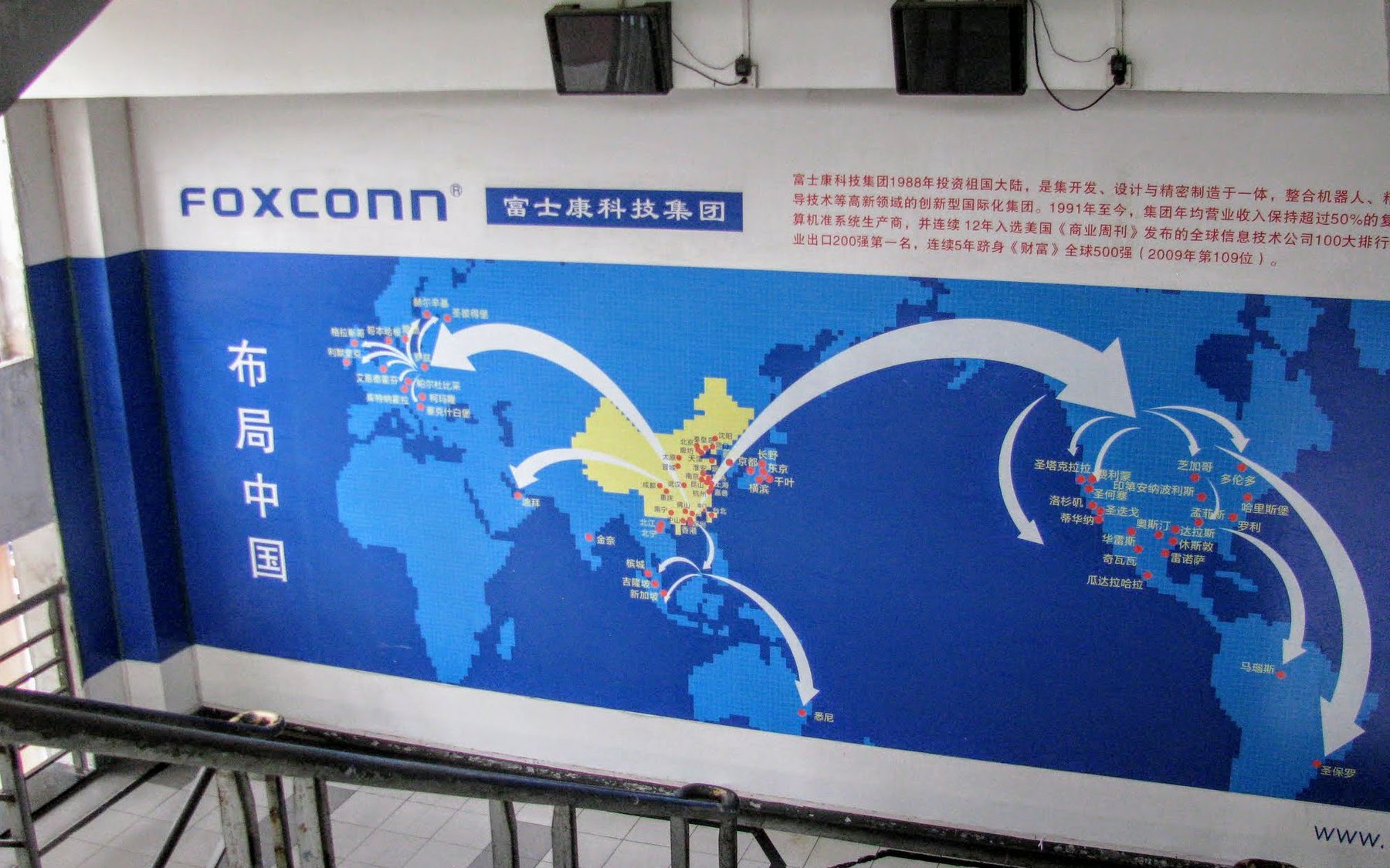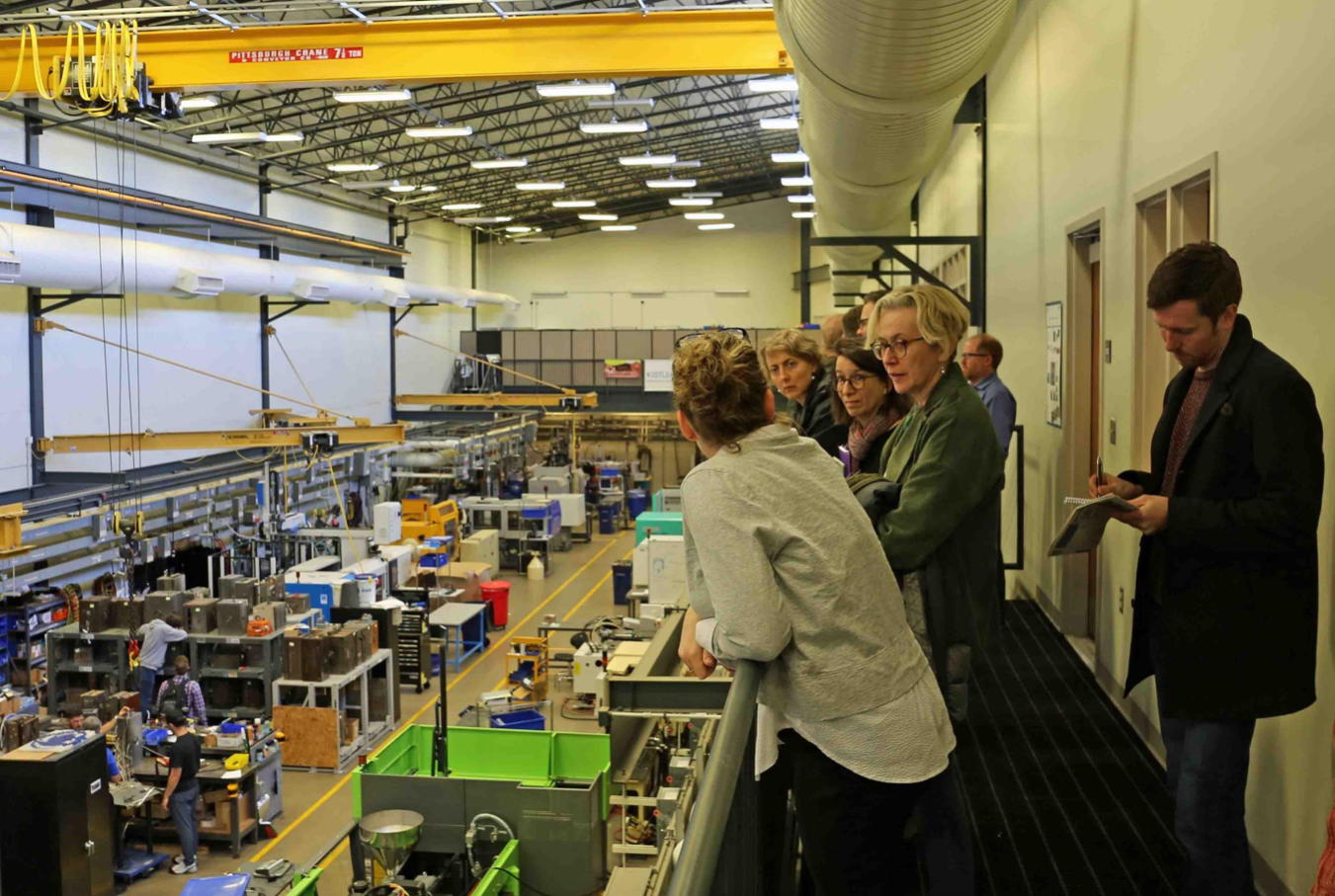Introduction by Ben Speggen
Below, Elaine Dezenski, a Senior Advisor at the Center on Economic and Financial Power at the Foundation for Defense of Democracies and Chief Growth Officer at Blank Slate Technologies, and John Austin, who Directs the Michigan Economic Center and is a Nonresident Senior Fellow with the Brookings Institution and the Chicago Council on Global Affairs, explain ally-shoring, its implications, and why they believe it can lead to better foreign policy and improved democratic economies.
Here is their case:
With Russia at Ukraine’s doorstep and China saber-rattling in Hong Kong and Taiwan, an international spotlight is shining on the growing strategic economic and political competition between authoritarian states and the U.S. and our democratic allies. Behind these concerns is the potential, as we have written before, of “ally-shoring” and now is the time the U.S. and its allies must act together.
Particularly from China, there are proactive efforts to dismantle the West-led, open, rules-based international order. Beijing’s influence takes many forms – from its dependency-building Belt and Road Initiative, which continues to erode core principles of international economic development, to its eager backing of anti-democratic authoritarian leaders who financially and politically benefit from deal-making with China, even if their countries’ coffers, and citizens, lose.
As Elizabeth Economy wrote recently in Foreign Affairs, China’s ambitions under leader Xi Jinping to surpass the U.S. as the world’s economic and political leader and subvert the historic West-led rules-based international order, appear to be real. It is too early to tell if these ambitions are being animated too heavy-handedly, or whether what appears to be growing backlash among countries China would like to make client states will deter China’s global leadership designs.
Either way, the U.S. and its democratic allies need to get better organized and work together to preserve the global, rules-based system and ensure democracies prevail in a competition with authoritarianism for the hearts and minds as well as self-interests of international leaders and their nations’ citizens.
There are signs of some emerging resistance and resentment of the self-serving development model offered by the Belt and Road. And China, on its own, is pulling back a bit, looking to consolidate its own supply chains at home.
Will these trends continue? Maybe, but democracies shouldn’t bank on that.
What China’s true goals are, what constraints to its actions may appear, and which way the world will go in its own relationship with China are questions whose answers, as many observers including James Fallows have noted, are impossible to “know” for sure.
The U.S. and our allies don’t have to wait around to find out where China is going. In fact, we shouldn’t. We can secure our own future and a future of a more prosperous, democratic, and “good rules”-based international order by animating an affirmative, outward-oriented economic and foreign policy that links political and economic arms with those who share our values. And better than the somewhat defensive rhetoric coming out of the recent U.S.-convened democracy summit, we must strive for a policy that offers a meaningful positive development alternative to nations around the world.
What is the cornerstone to this policy?
As it did so dramatically in so many areas, the emergence of COVID-19 and the global pandemic exposed new truths – and points us to an answer to this question.
The COVID-19 crisis revealed the fragility of our health, political, and economic systems. It also exposed the tenuous nature of our critical supply chains. An over-reliance on China in our supply chain for medical supplies, pharmaceuticals, and rare-earth metals, amongst other things, revealed our basic vulnerability to China’s mercantilist regime.
The initial response to supply chain disruptions included loud calls to pull back scattered global supply chains in America as well as in Europe to bring jobs back home, protecting our economic security. Certainly, sourcing a greater share of some products and components of products domestically has a place in building more redundant and resilient supply chains that can survive an interruption or an unwelcome dependence on a competitor that doesn’t share our values, but it would be unrealistic and incredibly costly and impractical. In some cases, it could even be destructive to business and consumers, to unwind too much a tightly knit and interdependent global economy.
We can accomplish both economic goods of rebuilding our own and our allies’ economies and political goals of providing renewed leadership in shaping the world’s political, economic, and trade relations not by a sole focus on “on-shoring” production domestically, but by what we call “ally-shoring.”
“Ally-shoring,” as we wrote previously, describes a program of sourcing essential materials, goods, and services more with trusted friends, while disengaging any state actors who seek to undermine American interests. Ally- shoring recognizes the useful interdependencies of the global economy, the reality of globalized information and supply chains, and doesn’t suggest we will have zero economic engagement with China – which has been and continues to be an important part of many global supply chains and remains a large market for Western companies. But ally-shoring leans into our relationships with those we trust, who share our democratic values and commitment to a rules-based economic system. By centering our economic and trade relations with our friends, we can drive a more powerful collective recovery, facilitate larger scale economic activity, and strengthen democracy here and abroad.
And as we said last year in the Detroit News, ally-shoring can be a potent strategy to create more new good paying jobs in the U.S. – including in the industrial Heartland – than trying to domestic source our critical supply chains. This is because we don’t so much “trade” with allies, but co-produce high value goods and many services in tightly wound global supply chains, much of it centered in the manufacturing-rich Midwest.
As detailed for the Brookings Institution, nearly 50% of 11 Midwestern states so-called “trade” in the form of exports are to Canada and over 20% to Mexico. But half of this North American “trade” and 37% of overall U.S. “trade” with allies in the EU are in the form of intermediate goods (component parts of a finished product). Producing more together with allies in important sectors, such as electric vehicles, semiconductors, AI-run manufacturing, and distribution systems grows our collective economy and benefits all.
Ally-shoring also achieves a complementary foreign policy goal by affording an option to countries who would rather work with a western-led trade and economic development. By doing so, ally-shoring serves to undergird the long-term economic success and stability of democracies across the globe.
The U.S. and our allies need to make and enforce new rules for a new era that acknowledge today’s new economic and geo-political realities. These realities include a “risen” China eying more power and influence, and other authoritarian leaders willing to sacrifice their own people’s interest and democracy to hold on to power (and often money).
In an era when the U.S. and China (and everyone else in a world) are totally intertwined by economic, trade, communication, and travel ties—with shared opportunities as well as shared global challenges to meet, from international security, to climate change, to managing better the pandemics of the future—the U.S. must lead in defining a hard-headed but still win-win development scenario, including with China, that still preserves an open, rules-based political and economic order.
The Biden Administration is talking explicitly about rebuilding a democratic alliance, and working together to rebuild economies, critical supply chains and a functional international economic and political order. And doing so not by going it alone but by working together with our allies, re-animating an international order that works again by “good” rules:
- Transparent governance processes and procurements
- Respect for rule of law
- Supporting high-quality foreign direct investment, or FDI
- Nurturing local value-add (as opposed to having Chinese companies import materials, labor, etc., with little benefit to local populations)
- Support for basic human rights, environment, social justice, and equity
But to create meaningful incentives for the embrace of a U.S. and allies-defined economic and developmental model by nation-states and their leaders, it must be imbued and embedded with some new approaches on the part of the U.S. We need new rules for us and our allies to live by, that offer a much clearer win-win to our partners in terms of their own economic growth and political stability, and more perfectly realize our own rhetoric and long-held idealism and aspirations around what America represents and does in the world.
In relations with our allies and potential allies, the U.S. needs to:
- Treat each other as true allies, not just trading partners, through long-term commitments to mutual economic security and prosperity.
- Co-invest in critical manufacturing, innovation, technology, and workforces of the future; and take the time needed for this to bear fruit.
- Lead by example by investing specifically in U.S. industrial heartlands and its communities to build the domestic foundations for ally-shoring through advanced manufacturing, innovation, and economic opportunity for more Americans.
- Reinforce together with our allies that all boats can and should rise, and the benefits of globalization must spread to all citizens to reinforce social cohesion, peace, and prosperity, especially for the middle class.
- Put human rights back at the center of foreign policy.
A visible and tangible ally-shoring program cannot only reset the global rules but will help to reinforce founding democracies (like right in our own backyard) and head off the slow degradation of democracy China and other authoritarians are banking on.
Acting on ally-shoring is ever more urgent for the U.S. The careful reengagement of U.S. leadership and rebuilding the Western alliance President Biden worked to promote early this past summer at the G-7, EU, and NATO meetings (message: “We are back”), has had a spanner thrown in its works with the messy exit from Afghanistan. The chaotic retreat and less than perfect coordination with our allies revived worries about America’s constancy as both partner and leader, first raised during the Trump Administration. Then another key ally, France, was temporarily alienated for being blind-sided by the UK-U.S.-Australia submarine deal. The recent Democracy Summit, in our reading, produced more rhetoric than real actions; and if anything suggested democracy was playing defense not going on offense.
Now more than ever it is time to demonstrate U.S. leadership and resolve by making ally-shoring a centerpiece of U.S. foreign, economic, and national security policy, and by articulating a more explicit offer to other nations of U.S. commitment, and what ally-shoring means in practice.
The basic message from the U.S. to other countries should be this: “If you agree to support our rules – those of an open, rules-based international economic and political order – we will engage at a high level politically and economically. We will facilitate our countries’ business-leadership to business-leadership dialogue (as was just renewed with U.S. & Mexico)—to identify critical supply chains reworks and co-production arrangements that grow new businesses and jobs in both our countries. We will work with you to provide a counterweight and send a message to authoritarian regimes that we and our allies are serious about not only maintaining but reinvigorating an open, transparent, rules based economic order. We will offer you a better alternative for development than corrupting and dependency building ‘help’ with things like infrastructure, that are on offer from China.”
China and other authoritarian states may keep on their current course, but the U.S. and our allies can’t sit paralyzed, but can act! For economic, international security, global political stability, and the protection of our democracies – the time for ally-shoring is right now.




